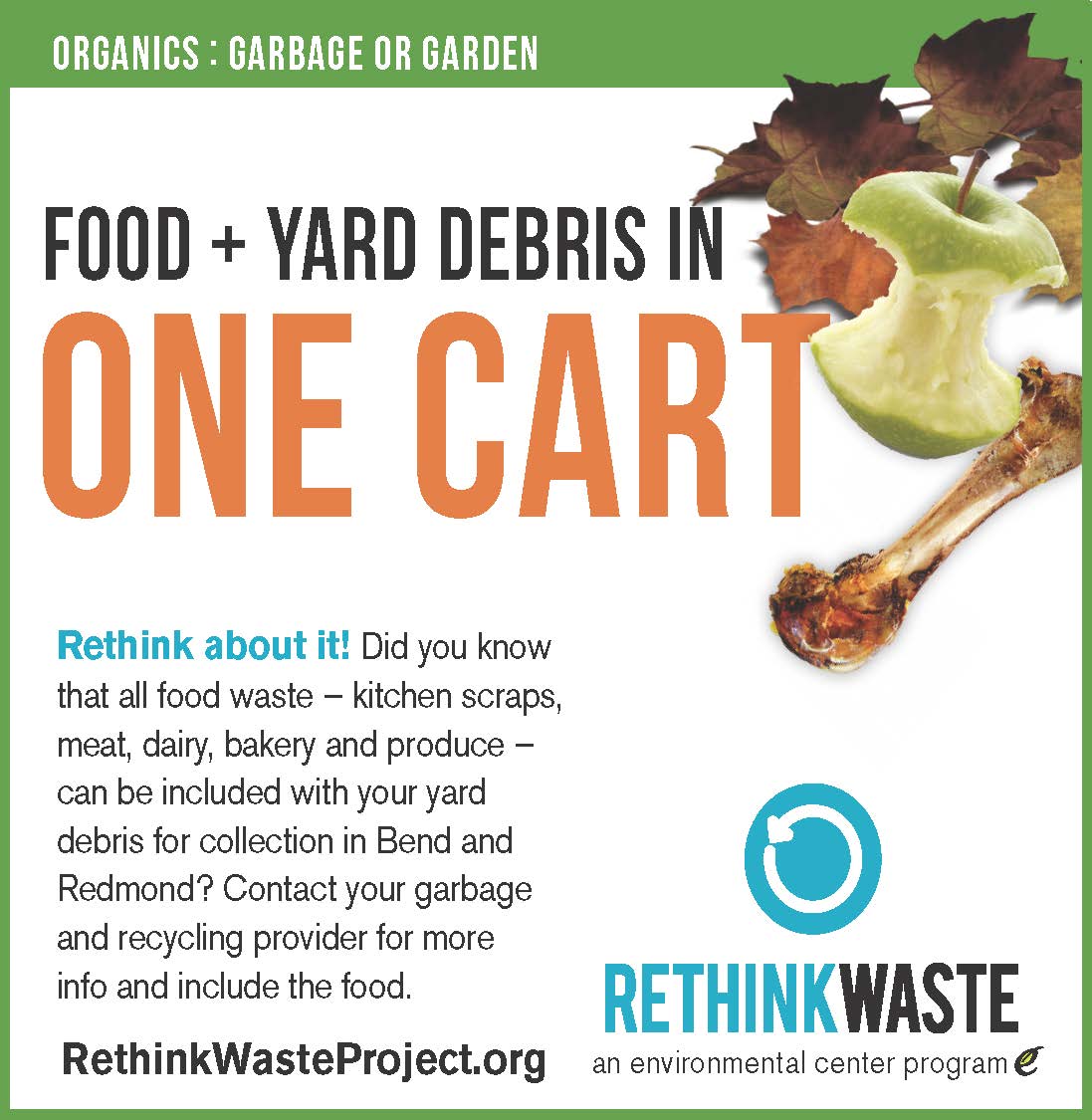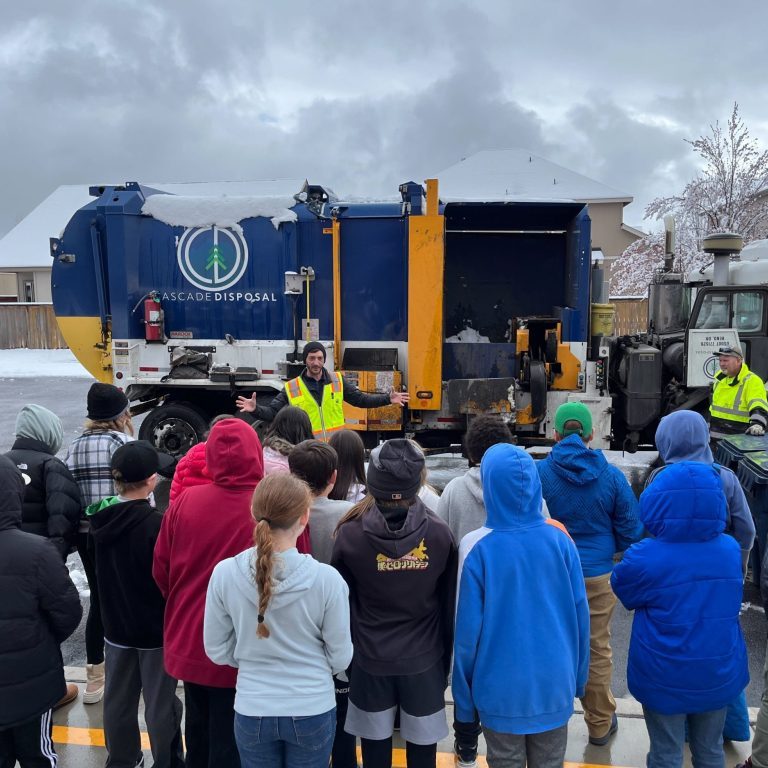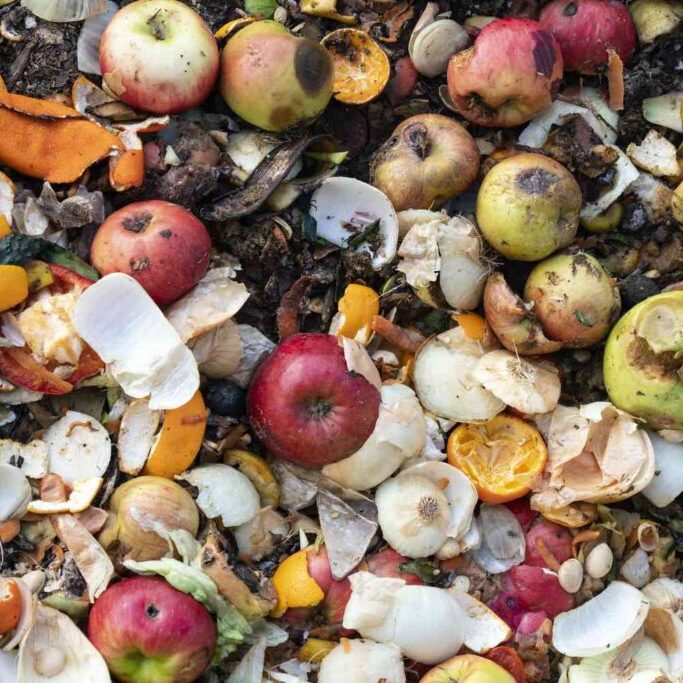Composting Tips
Keep the organics moving through the cycle of life!
Composting at home is the most efficient way of recycling your organic matter.
If you don't have the time or inclination to compost at home, you can compost through your yard debris bin: your garbage service will pick up your yard debris and turn it into compost at our local facility at Knott Landfill. For information about composting pick up service, contact your hauling service directly (learn how here!)

Does your school or community garden need compost?
Our Garden for Every School program is collaborating with Republic Services to provide free compost to school and community gardens in Central Oregon this spring. Gardens interested in participating can register and order using the link below!
About compost
Compost is very nutrient and nitrogen dense and sometimes needs to be mixed with something before being used.
Close the loop locally by either making backyard compost or buying locally made compost through Deschutes Recycling. If you do not have a use for compost in your garden or landscaping, you can still compost your food waste by having your regular garbage service pick it up in your yard debris bin!
Composting without a yard or public service
Do any of these statements sound like you?
- I live in a small apartment and there is no composting on the property.
- I have a yard, but my HOA says I can’t have a compost pile.
- I live outside city limits so I don’t get yard debris service and I don’t want to deal with a compost pile.
First, learn to reduce your wasted food as much as you can. Second, we wrote a blog with some options that might work for you!
Backyard composting
If you have a fair amount of yard waste on a regular basis, consider creating a compost pile in your yard. There are many options such as:
- a basic open pile
- a store-bought tumbler style bins
- a static non-tumbling bin
- sheet mulching aka “lasagna composting”
- a 3-bin system
Other composting methods
Worm composting (also known as vermiculture) is great for households that only have fruit and vegetable scraps and for those who live in smaller spaces such as apartments or condominiums.
Learn more about vermiculture here!
Grasscycling refers to leaving your grass clippings on the lawn when mowing. Grass clippings decompose quickly, releasing up to 40% of the vital nutrients back into the lawn, reducing the need for chemical fertilizers.
Take the food waste challenge!
Our free 4 week home challenge is designed to help you find out what -- and how much -- food is going to waste in your home.



